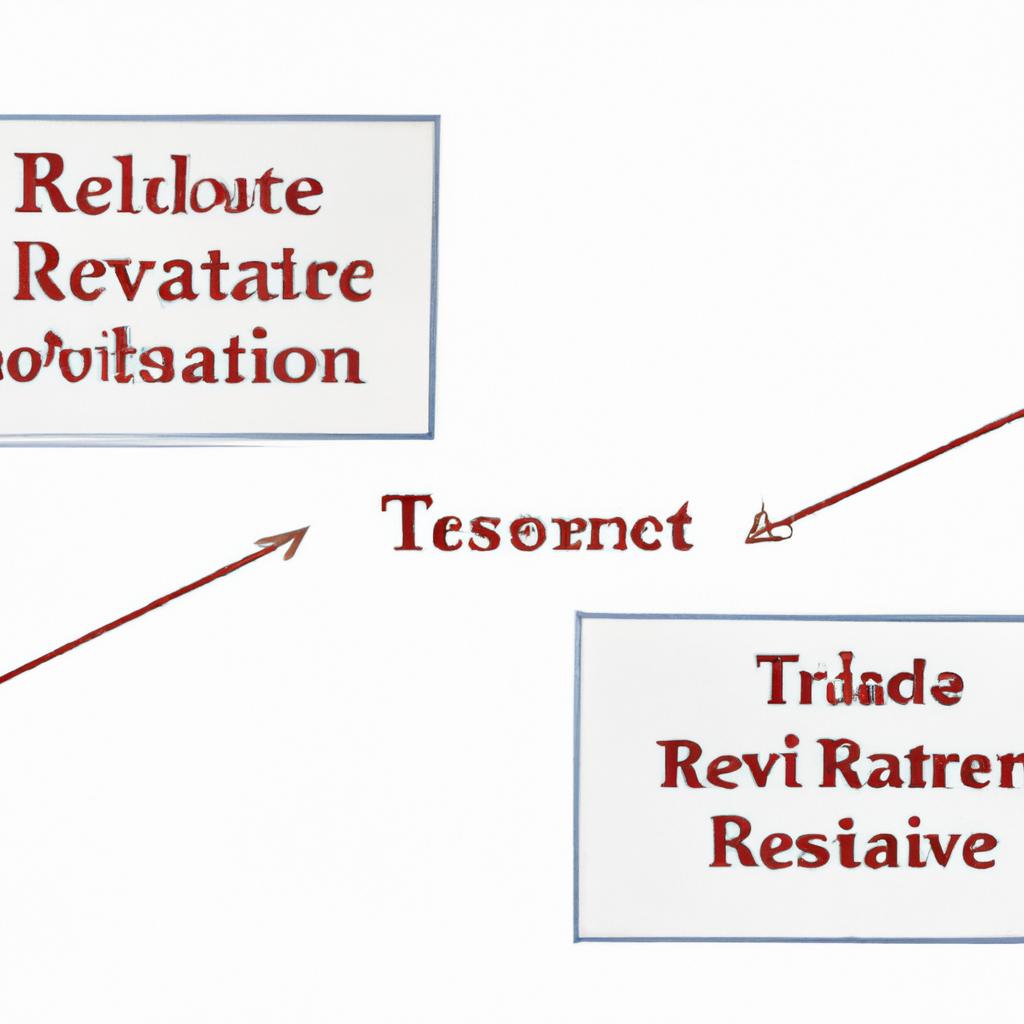In the labyrinth of real estate transactions, the importance of establishing trust cannot be overstated. Choosing the right type of trust for your real estate holdings is a crucial decision that can have far-reaching implications for both you and your heirs. At Morgan Legal Group in New York City, our team of adept attorneys specializes in estate planning and trust administration. Join us as we delve into the intricacies of trust structures and determine which type is best suited for safeguarding your real estate assets.
Determining the Optimal Trust Structure for Real Estate Investments
When it comes to real estate investments, choosing the right trust structure is crucial for maximizing benefits and protecting assets. There are several types of trusts that can be utilized for real estate investments, each offering unique advantages and considerations. Understanding the differences between these trust structures is essential in determining the optimal choice for your specific investment goals.
One popular option for real estate investments is a revocable living trust, which allows for flexibility and control over assets during your lifetime. Alternatively, an irrevocable trust can provide asset protection and tax benefits, but comes with more restrictions. It is important to weigh the pros and cons of each trust type, as well as consider factors such as taxation, asset protection, and estate planning goals. Consulting with a knowledgeable estate planning attorney can help you navigate the complexities of trust structures and make an informed decision for your real estate investments.

Comparing Revocable and Irrevocable Trusts in Real Estate Planning
When it comes to real estate planning, choosing between a revocable trust and an irrevocable trust can be a critical decision. Each type of trust offers its own set of benefits and limitations, and the right choice depends on your individual circumstances and goals. Here is a comparison of revocable and irrevocable trusts in real estate planning:
Revocable Trust:
- Can be modified or revoked by the grantor during their lifetime
- Assets in the trust are considered part of the grantor’s estate for tax purposes
- Provides flexibility and control over the assets during the grantor’s lifetime
Irrevocable Trust:
- Cannot be modified or revoked once established
- Assets in the trust are not considered part of the grantor’s estate for tax purposes
- Offers asset protection and potential tax benefits

Navigating Tax Implications and Asset Protection in Real Estate Trusts
When it comes to real estate trusts, choosing the right type of trust is crucial for both tax implications and asset protection. Different types of trusts offer various benefits and drawbacks, so it’s essential to understand your goals and priorities before making a decision.
Revocable trusts provide flexibility and control during your lifetime, while irrevocable trusts offer strong asset protection and estate tax benefits. Consider your long-term objectives, whether you want to keep control over your assets, minimize tax liabilities, or protect your property from creditors. Consulting with a knowledgeable estate planning attorney can help you navigate the complexities of real estate trusts and make an informed decision that aligns with your financial goals.

Recommendations for Establishing a Trust for Real Estate Holdings
In establishing a trust for real estate holdings, it is important to consider the specific needs and goals of the individual or entity creating the trust. There are several types of trusts that can be utilized for real estate assets, each with its own advantages and considerations. Some include:
- Revocable Living Trust: This type of trust allows for flexibility and control during the lifetime of the trust creator. It can be amended or revoked as needed, and assets can be transferred in and out of the trust easily.
- Irrevocable Trust: This type of trust provides asset protection and can help with estate tax planning. Once assets are placed in an irrevocable trust, they cannot be removed, but the trust can provide various benefits depending on the specific goals of the trust creator.
| Trust Type | Advantages | Considerations |
|---|---|---|
| Revocable Living Trust | Flexibility and control | Can be amended or revoked |
| Irrevocable Trust | Asset protection, estate tax planning | Assets cannot be removed |
Q&A
Q: What type of trust is best for real estate?
A: There are several types of trusts that can be beneficial for owning and managing real estate. The best type of trust will depend on your individual circumstances and goals.
Q: What is a revocable trust and how does it work for real estate?
A: A revocable trust allows you to retain control over your assets during your lifetime and easily make changes to the trust. It can be a good option for managing real estate and avoiding probate.
Q: How does an irrevocable trust differ from a revocable trust in terms of real estate ownership?
A: An irrevocable trust transfers ownership of assets, including real estate, to the trust and cannot be changed or revoked. This can provide asset protection and estate tax benefits.
Q: Can a land trust be a good option for real estate ownership?
A: A land trust can provide privacy and liability protection for real estate owners, as well as simplifying the transfer of property upon death.
Q: What factors should be considered when choosing a trust for real estate?
A: When choosing a trust for real estate, it is important to consider your goals for the property, tax implications, asset protection, and the level of control you want to maintain over the property. Consulting with a trusted estate planning attorney can help you determine the best type of trust for your specific situation.
The Way Forward
In conclusion, when it comes to real estate, choosing the right type of trust can make all the difference in protecting your assets and securing your financial future. Whether you opt for a land trust, living trust, or a revocable trust, it’s important to carefully consider your individual circumstances and consult with a legal professional to ensure you make the best decision for your needs. Ultimately, the key is to prioritize trust – in both your chosen trust structure and in the professionals guiding you through the process. Trust wisely, and watch your real estate investments flourish.
 There are many factors to consider when determining the best type of trust for real estate. Trusts are legal arrangements in which a person, known as the grantor, transfers assets to a third party, known as the trustee, for the benefit of a beneficiary. Trusts offer a variety of benefits for those looking to protect their assets and plan for the future. In this article, we will explore the different types of trusts and determine which one is best for real estate.
There are many factors to consider when determining the best type of trust for real estate. Trusts are legal arrangements in which a person, known as the grantor, transfers assets to a third party, known as the trustee, for the benefit of a beneficiary. Trusts offer a variety of benefits for those looking to protect their assets and plan for the future. In this article, we will explore the different types of trusts and determine which one is best for real estate.
Types of Trusts:
1. Revocable Trust:
A revocable trust, also known as a living trust, is a trust that can be changed or revoked by the grantor at any time during their lifetime. This type of trust allows the grantor to maintain control over their assets and make changes as needed. In a revocable trust, the grantor can also serve as the trustee and manage the trust’s assets. However, upon the grantor’s death, the trust becomes irrevocable, and the assets are distributed to the designated beneficiaries.
Benefits:
– Flexibility and control over assets
– Avoids probate process, saving time and money
– Privacy, as the trust does not go through public record
– Protection from court challenges or disputes
Practical Tip:
A revocable trust is best suited for individuals who want to maintain control over their assets and have the ability to make changes to the trust as their circumstances change. It also offers privacy and protection from potential legal disputes.
2. Irrevocable Trust:
An irrevocable trust, as the name suggests, is a trust that cannot be changed or revoked once it is created. In this type of trust, the grantor transfers complete ownership and control of their assets to the trustee. The grantor is no longer the legal owner of the assets, and therefore, they are not subject to estate taxes upon their death.
Benefits:
– Estate tax savings
– Protection from creditors and lawsuits
– Can be used for charitable giving or special needs planning
– Assets pass directly to beneficiaries without going through probate
Practical Tip:
An irrevocable trust is best for individuals who are concerned about estate taxes or want to protect their assets from potential creditors or lawsuits. It is also useful for charitable giving or planning for individuals with special needs.
3. Testamentary Trust:
A testamentary trust is created in a person’s will and is activated upon their death. It is used to manage and distribute assets to beneficiaries after the grantor’s death. Unlike revocable and irrevocable trusts, a testamentary trust does not avoid probate and is subject to estate taxes.
Benefits:
– Allows for control over assets, even after the grantor’s death
– Can be used to provide for minor or financially irresponsible beneficiaries
– Provides tax benefits for estate planning purposes
Practical Tip:
A testamentary trust is best suited for individuals who want to maintain control over their assets and have specific plans for their beneficiaries after their death. It can also provide tax benefits for estate planning.
4. Land Trust:
A land trust is a trust that holds title to real estate properties. It is commonly used to hold investment properties, vacation homes, or undeveloped land. The trust’s beneficiaries have the right to use the property and receive any income generated from it, but they do not have legal ownership. The trustee manages the property and handles all legal matters concerning it.
Benefits:
– Privacy, as the beneficiaries’ names are not on the title
– Facilitates smooth transfer of property to beneficiaries upon the grantor’s death
– Protection from legal disputes or lawsuits
– May offer tax benefits
Practical Tip:
A land trust is best suited for individuals who want to maintain privacy, protect their assets from potential lawsuits, and facilitate a smooth transfer of the property to beneficiaries upon their death.
Case Study:
John and Sarah were a married couple who owned several rental properties. They wanted to ensure that their properties passed to their children after their deaths without going through the lengthy probate process. They also wanted to protect their assets from any potential legal disputes or lawsuits. After consulting with their attorney, they decided to create a revocable living trust to hold their real estate properties. This allowed them to maintain control over their properties and make changes to the trust as needed. Upon their deaths, the trust would become irrevocable, and the properties would be distributed to their children without going through probate.
Firsthand Experience:
According to real estate investor and author, Joe Fairless, using a trust for real estate has provided him with peace of mind and avoided any potential legal disputes. In an interview with Forbes, he stated, “I use a trust because it allows me to maintain control over my properties while providing a layer of protection for my assets. It also makes the transfer of properties to my heirs seamless and avoids the probate process.”
Conclusion:
In conclusion, the best type of trust for real estate depends on the individual’s goals and circumstances. Revocable trusts offer flexibility and privacy, while irrevocable trusts provide tax benefits and protection from creditors. Testamentary trusts are useful for control over assets after death, and land trusts offer privacy and protection from lawsuits. It is essential to consult with an attorney to determine the best type of trust for your specific needs and goals. Trusts, when used correctly, can be a valuable tool for protecting assets and planning for the future.












